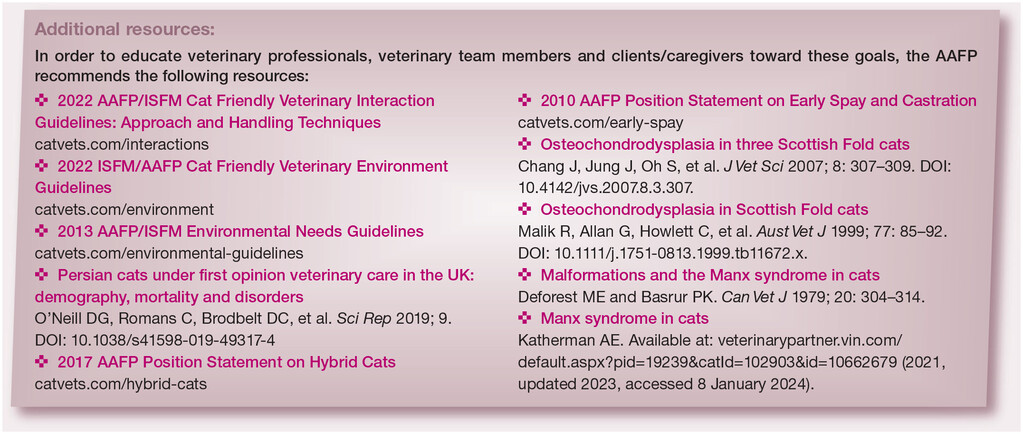The American Association of Feline Practitioners (AAFP) has issued a statement giving this information. Help for the health and welfare of cats, keeping overall well-being at the forefront of each cat’s veterinary care. In this sense, in relation to cat breedingThe association states that “the veterinarian has a moral and ethical responsibility to protect the well-being and comfort of the cat.” Irrespective of the interest of the breeder/keeper By certain practices, standards or characteristics of the breed. The cat’s environmental, behavioral and health needs must be taken into account for its well-being and comfort.
Similarly, he also emphasizes that as a result of selective breeding for the appearance or other traits deemed desirable, Some breeds of cats have an increased risk of deformities and poor health, And, given this framework, “AAFP does not support the breeding of cats in which well-being is compromised or negatively impacted,” they state in the manifesto.
“Veterinarians should implement preventive health and genetic testing (for example, echocardiography screening for hypertrophic cardiomyopathy) as part of diagnosis to provide state-of-the-art medical care. Genetic testing for certain diseases as well as for coat length, color, and other traits in different cat breeds is widely available. With the help of genetic and health screening, many hereditary disorders in cats can be prevented and eliminated, and precise, personalized veterinary care can be supported.“, they insist.
Given these circumstances, the AAFP expresses that it does not support breeding based on appearance alone when health concerns and feline welfare are not prioritized. “Although veterinarians will continue to provide appropriate medical care to all cats, The AAFP does not tolerate the breeding of cats with underlying deformities, such as the Scottish Fold and Manx, nor any breeds with severe brachycephaly or other compromised conformation. She added, “AAFP encourages greater awareness and research on these breeds and their associated health problems to gain a better appreciation and understanding of the impacts on the well-being of these cats.”
Similarly, the AAFP maintains its strong support for the Convention on International Trade in Endangered Species of Wild Fauna and Flora and Condemns the illegal importation of all wild felids, They concluded in their statement, “AAFP opposes the breeding of feral cats (non-domesticated cats) with domestic cats and discourages ownership of first-generation hybrid cats for both animal welfare and public safety reasons.”

Resources recommended by AAFP.
 Play Crazy Game Trusted Gaming News Portal
Play Crazy Game Trusted Gaming News Portal



